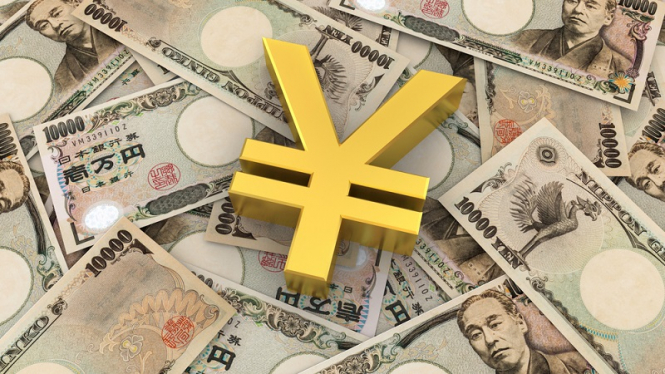
The yen has reached a mark that indicates that Japanese investors can return to US Treasury bonds. Japan's national currency rose above $ 110, and local funds began to increase the purchase of foreign securities at the fastest pace in four months. In Deutsche Bank AG and Credit Agricole SA, they believe that the trend will accelerate if the yen rushes to $ 100.
Meanwhile, last year it was said that Japanese funds owning $ 2.4 trillion of overseas debt would change investment preferences, as the adjustment of the Central Bank rate led to an increase in the yield of government bonds. Now, it has become clear that this statement is very far from the truth, yields in Japan have fallen, and the yen has strengthened significantly in price.
"We can see a growth in the demand of local investors for unhedged Treasury bonds against the backdrop of the prospects for strengthening the yen, especially after the currency has risen above $ 110. It is possible that a huge amount of money went into foreign bonds, as the yen rose more than expected," representatives of the Tokyo-based Sumitomo Mitsui Trust Asset Management Co. fund comment on the situation.
Japanese life insurers are the largest holders of foreign paper, so their demand may be decisive. So, two companies in October announced their intention to buy unhedged foreign debt after the fall of the US dollar below 110 yen.
Last year, the gaining dollar made hedging expensive for the Japanese, prompting investors to net sales of 5.2 trillion yen ($ 47.5 billion) of US bonds in the first 11 months of the year. Three months before December, insurers sold foreign bonds worth about 900 billion yen. It is noted that now they have a sufficient amount of money.
Due to the fact that the yen is located below 110, the purchase of foreign securities in Japan from January 4 to January 18 amounted to approximately 3 trillion yen. This is the highest rate since September. On Wednesday, the USD / JPY was trading around $ 109.60 against the $ 114.55 mark at the beginning of October, which is an 11-month low.
Desire to risk
The yen has very good prospects ahead, in the coming months it may rise in price to the dollar by up to 100. Currency strategists attribute this to the fact that the slowdown in global growth and tension between the United States and China in the matter of trade keep investors from investing in risky assets.
At the end of last year, Japan's baseline 10-year yield became negative for the first time in more than a year and amounted to 0.005% on Wednesday. The yield premium that treasury bonds of the same maturity offer in relation to Japan's debt rose to 271 basis points. In early January, this figure was 256.
"Investors cannot invest in bonds in yen, as their profitability falls. They have to take risks and invest abroad to gain profitability," write local strategists.
The material has been provided by InstaForex Company - www.instaforex.com